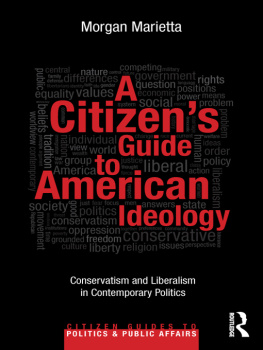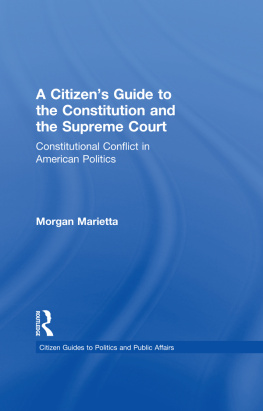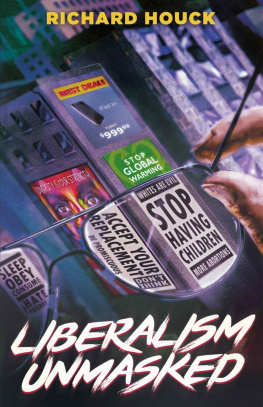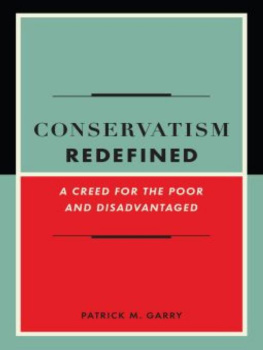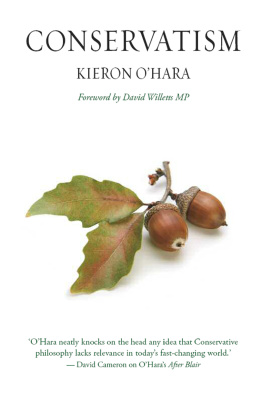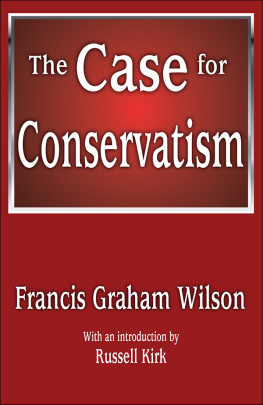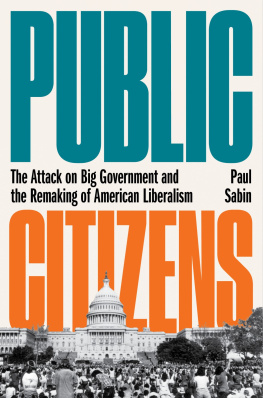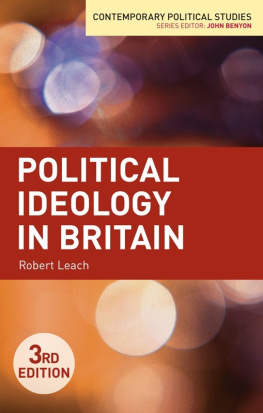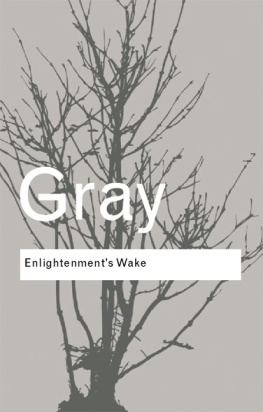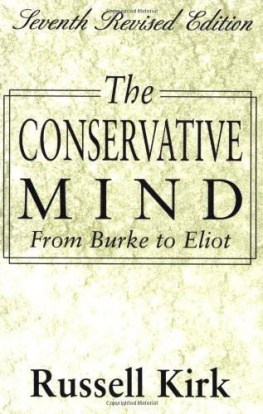A CITIZENS GUIDE TO
AMERICAN IDEOLOGY
Conservatives and Liberals often resort to cartoon images of the opposing ideology, relying on broadly defined caricatures to illustrate their opposition. To help us get past these stereotypes, this short, punchy book explains the two dominant political ideologies in America today, providing a thorough and fair analysis of each as well as insight into their respective branches.
To help us understand the differences between the two contrasting ideologies, Morgan Marietta employs an innovative metaphor of a treegrowth from ideological roots to a core value, expanding into a problem that creates the competing branches of the ideology. This approach suggests a clear way to explain and compare the two ideologies in an effort to enhance democratic debate.
A Citizens Guide to American Ideology is a brief, non-technical, and conversational overview of one of the most important means of understanding political rhetoric and policy debates in America today.
Morgan Marietta is Visiting Assistant Professor in the Department of Political Science at the University of Georgia.
A CITIZENS GUIDE
TO AMERICAN
IDEOLOGY
Conservatism and Liberalism in
Contemporary Politics
Morgan Marietta
First published 2012
by Routledge
711 Third Avenue, New York, NY 10017
Simultaneously published in the UK
by Routledge
2 Park Square, Milton Park, Abingdon, Oxon OX14 4RN
Routledge is an imprint of the Taylor & Francis Group, an informa business
2012 Taylor & Francis
The right of Morgan Marietta to be identified as author of this work has been asserted by him/her in accordance with sections 77 and 78 of the Copyright, Designs and Patents Act 1988.
Printed and bound in the United States of America on acid-free paper by Edwards Brothers, Inc.
All rights reserved. No part of this book may be reprinted or reproduced or utilised in any form or by any electronic, mechanical, or other means, now known or hereafter invented, including photocopying and recording, or in any information storage or retrieval system, without permission in writing from the publishers.
Trademark notice: Product or corporate names may be trademarks or registered trademarks, and are used only for identification and explanation without intent to infringe.
Library of Congress Cataloging in Publication Data
A citizens guide to American ideology: conservatism and liberalism in contemporary politics / Morgan Marietta.
p. cm.
Includes bibliographical references and index.
1. ConservatismUnited States. 2. LiberalismUnited States.
IdeologyUnited States. I. Title.
JC573.2.U6M349 2011
320.50973dc23
20110109602
ISBN: 978-0-415-89899-7 (hbk)
ISBN: 978-0-415-89900-0 (pbk)
ISBN: 978-0-203-18309-0 (ebk)
Printed and bound in the United States of America
on acid-free paper by Edwards Brothers, Inc.
FOR MY STUDENTS
CONTENTS
| 1 |
PART I
Conservatism |
| 2 |
| 3 |
| 4 |
| 5 |
PART II
Liberalism |
| 6 |
| 7 |
| 8 |
| 9 |
PART III
Comparisons and Controversies |
| 10 |
| 11 |
| 12 |
| 13 |
| 14 |
ILLUSTRATIONS
Figures
| 1.1 |
| 2.1 |
| 2.2 |
| 3.1 |
| 4.1 |
| 5.1 |
| 6.1 |
| 6.2 |
| 7.1 |
| 8.1 |
| 9.1 |
| 11.1 |
| 13.1 |
| 14.1 |
| 15.1 |
| 15.2 |
| 15.3 |
Tables
CITIZEN GUIDES TO POLITICS
AND PUBLIC AFFAIRS
Morgan MariettaBert Rockman, Series Editors
Each book in this series is framed around a significant but not wellunderstood subject that is integral to citizensboth students and the general publicfull understanding of politics and participation in public affairs. In accessible language, these titles provide readers with the tools for understanding the root issues in political life. Individual volumes are brief and engaging, written in short, readable chapters without extensive citations or footnoting. Together they are part of an essential library to equip us all for fuller engagement with the issues of our times.
TITLES IN THE SERIES
A Citizens Guide to American Ideology:
Conservatism and Liberalism in Contemporary Politics
Morgan Marietta
ACKNOWLEDGMENTS
This book originated in lectures given to my students at Colgate University, Bates College, Hamilton College, and the University of Georgia, and more importantly in the discussions that followed with many sharp minds testing their own perspectives on American politics. The book is dedicated to students of our national conversation, in and beyond university classes.
Many thanks are due to Michael Kerns at Routledge Press, who supported this series and its goal of speaking to a broad audience about essential political questions. My friend and colleague Bert Rockman was also instrumental in making the series possible.
Several students deserved special thanks for their comments on early drafts of the manuscript, including Will Burgess, Wells Ellenberg, Addie Hampton, and John Shapiro. I would also like to thank David Barker, Jeff Condran, Sam DeCanio, Robert Holzbach, Glenn Kent, Meredith Leland, and Robert Peluso, as well as Abby Williams and the rest of the clan, including Alix, Dan, Justin, David, and Ken. As always, I am indebted to Mark Perlman who inspired my desire to understand the nature of belief, and watched it grow at his table. Nosciture sociis if a man is known by his associates, I wish no better company.
INTRODUCTION
Too Common and Too Rare
If you ask many liberals what conservatives are, they will say mean people. Liberals are nice people who want to help others, and conservatives are selfish and uncaring. From the other perspective, many conservatives define liberalism as simply being foolish. Liberals are idealistic souls who have no clear grasp of the harsher realities of the world, both domestic and foreign. A line Ive heard many times is that if you are a conservative while young, you have no heart, but if you are still a liberal by the time you are old, you have no brain. If one bought into these views, it would present a difficult choice: would you rather be mean or foolish? Hard to say. Better to understand the two worldviews accurately so we can embrace or reject them for what they truly are rather than resort to cartoon images.
The purpose of this brief book is to explain American ideology. What is conservatism and what is liberalism? This is not meant to be an intellectual history of the two movements, or an academic account of the various strains of ideological thought over time and in different nations, but instead simply a discussion of citizen politics in contemporary America. The goal is to describe what it means to be conservative or liberal in the present day from the perspective of a politically interested citizen. When we identify what it means to hold an ideology in our current politics, it becomes clear that most Americans do not have one. They are not fully fledged liberals or conservatives, and do not offer these complete worldviews with their ready-made responses to current events. Often an individual citizens values lean to the conservative side or tend to be more liberal, but this is very different from holding a full political ideology.

